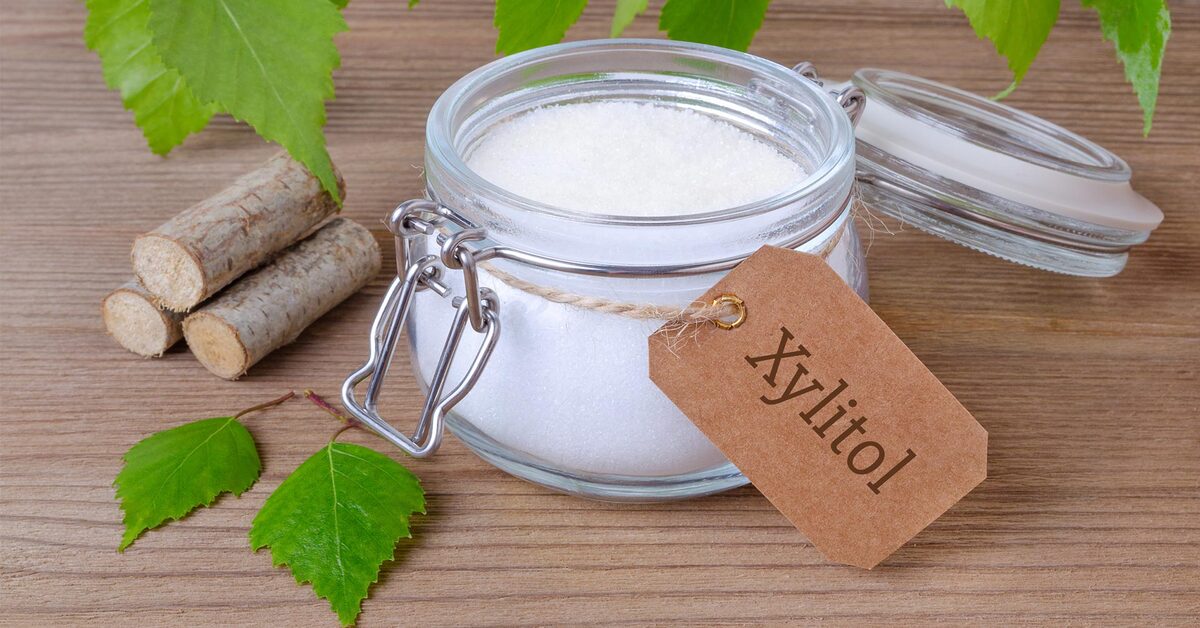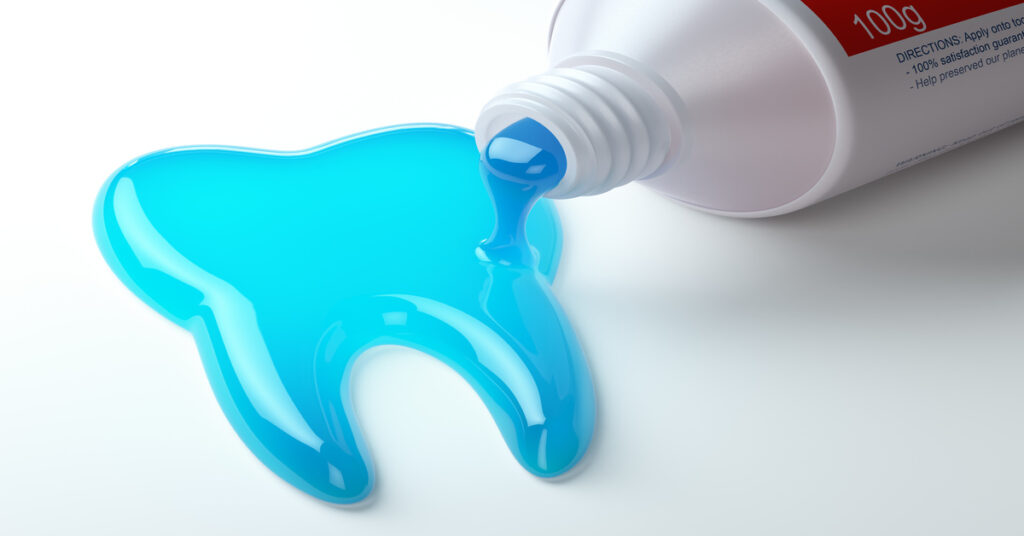XYLITOL
In a world where artificial sweeteners are ubiquitous and sugar is considered the enemy, there is a natural and healthy alternative that is gaining attention – xylitol. Not only does xylitol taste and look like sugar, but it also has fewer calories and doesn’t raise blood sugar levels. Xylitol has been shown to have numerous health benefits, including improved dental health, making it a sweetener worth considering. In this post, we’ll delve into the science behind xylitol and explore its many health benefits.
What Is Xylitol?
Xylitol is a type of sugar alcohol that is often used as a sugar substitute in various food and oral-care products. Its chemical structure combines traits of both sugar and alcohol molecules, allowing it to stimulate the sweetness receptors on your tongue. Xylitol occurs naturally in small amounts in fruits and vegetables and is even produced by the human body during metabolism. It is commonly found in sugar-free chewing gums, candies, mints, and diabetes-friendly foods. Compared to table sugar, xylitol contains 40% fewer calories, with 2.4 calories per gram. Although it is a refined sweetener and does not contain any vitamins, minerals, or protein, xylitol is often preferred for its natural origins and similar sweetness to sugar.
It can be processed from trees such as birch or from a plant fiber called xylan.
Despite being classified as carbohydrates, sugar alcohols generally do not cause a significant increase in blood sugar levels and are considered non-impact carbs, which is why they are commonly used in low-carb products as a sugar substitute.
Main Takeaway: Xylitol is a sugar alcohol that occurs naturally in some plants. Though it looks and tastes like sugar, it has 40% fewer calories.
Xylitol contains zero fructose and has negligible effects on blood sugar and insulin. [1]
Xylitol has a low glycemic index (GI) of only 7, compared to regular sugar’s GI of 60-70. This means it has a minimal effect on blood sugar and insulin levels. Xylitol is also a weight-loss-friendly sweetener due to its 40% lower calorie content compared to sugar. It can be an excellent alternative to sugar for individuals with metabolic issues such as diabetes, prediabetes, and obesity.
Although there is currently a lack of corresponding human studies, several rat studies suggest that xylitol may have potential health benefits. For example, these studies suggest that xylitol may improve symptoms of diabetes, reduce belly fat, and prevent weight gain on a fattening diet. [1, 2]
Main Takeaway: Xylitol has minimal impact on blood sugar and insulin levels compared to sugar. This makes it an excellent alternative for people with diabetes, prediabetes, obesity, or other metabolic disorders. Animal studies have shown impressive benefits for metabolic health, including improvements in diabetes symptoms, reduction in belly fat, and prevention of weight gain on a high-calorie diet.
Xylitol Boosts Dental Health
Xylitol is known for its positive effects on dental health, making it a common ingredient in oral care products such as toothpaste, mouthwash, and chewing gum. The reason for this is that xylitol has been shown to prevent tooth decay and promote overall dental health.
Xylitol has been found to be effective in promoting dental health and preventing tooth decay. Its mechanism of action involves reducing the available fuel for harmful oral bacteria that cause plaque, while also inhibiting their growth and promoting the remineralization of teeth.
When you consume xylitol, it replaces the sugar that bacteria like Streptococcus mutans normally feed on. Since these bacteria can’t use xylitol for energy, they end up starving and their growth is inhibited. This, in turn, reduces the formation of plaque and prevents tooth decay.
Although bacteria are capable of absorbing xylitol, they cannot utilize it as an energy source. Once xylitol is taken up, it blocks their glucose transporters, rendering them unable to take in glucose, which is their primary fuel source. As a result, the bacteria’s energy production pathway becomes obstructed, leading to their eventual death.
In other words, when you chew gum with xylitol or use it as a sweetener, the harmful bacteria in your mouth starve to death.
In one study, xylitol-sweetened chewing gum reduced levels of bad bacteria by 27–75%, while friendly bacteria levels remained constant.
Animal studies also suggest that xylitol may increase absorption of calcium in your digestive system, protecting against osteoporosis and strengthening your teeth. [1]
Human studies demonstrate that xylitol — either by replacing sugar or adding it into your diet — can reduce cavities and tooth decay by 30–85%. [1, 2]
As inflammation plays a significant role in the development of many chronic diseases, targeting plaque and gum inflammation may offer benefits beyond just oral health. By reducing inflammation in the mouth through proper dental care, you decrease the overall inflammation levels in the body, which could help mitigate the risk of various chronic diseases. Therefore, maintaining good oral hygiene practices contributes to improved overall health and wellbeing.
Main Takeaway: Xylitol can starve the harmful bacteria in your mouth, reducing plaque buildup and tooth decay. This can help prevent dental cavities and inflammatory gum diseases.
Xylitol Reduces Ear & Yeast Infections
The mouth, nose, and ears are connected, which means that bacteria living in the mouth can travel to the ears and cause infections, particularly in children.
However, research has shown that xylitol can be effective in reducing the growth of bacteria responsible for ear infections, in the same way it can starve plaque-producing bacteria in the mouth.
By inhibiting the growth of these bacteria, xylitol can help to reduce the incidence of ear infections, providing a natural and safe alternative to traditional antibiotic treatments.
According to a study conducted in children who frequently experienced ear infections, daily use of xylitol-sweetened chewing gum was found to reduce their infection rate by 40%.
In addition to its antibacterial properties, xylitol has also been found to have antifungal effects against Candida albicans, a type of yeast that can lead to candida infections.
Xylitol works by reducing the yeast’s ability to adhere to surfaces in the body, which can help prevent infection.
Candida infections can occur in various parts of the body, including the mouth, genitals, and digestive tract. By inhibiting the growth and adherence of Candida albicans, xylitol may help to reduce the risk of these infections and provide a natural alternative to antifungal medications.
Other Potential Health Benefits
Several studies conducted in rats have suggested that xylitol may be associated with increased collagen production, which could potentially help counteract the effects of aging on the skin. [1]
Xylitol may also be protective against osteoporosis, as it leads to increased bone volume and bone mineral content in rats. [1]
Xylitol also feeds the friendly bacteria in your gut, acting as a soluble fiber and improving your digestive health.
Main Takeaway: Xylitol may increase collagen production and reduce your risk of osteoporosis. It also feeds the friendly bacteria in your gut.
Toxicity to Dogs
While xylitol is absorbed slowly and has no significant effect on insulin production in humans, the same cannot be said for dogs. When dogs ingest xylitol, their bodies mistake it for glucose and start producing large amounts of insulin, even though xylitol does not provide the same amount of energy as glucose.
This excess insulin can cause the dog’s cells to rapidly absorb glucose from the bloodstream, which can lead to hypoglycemia, or low blood sugar, and even death.
Xylitol may also have detrimental effects on liver function in dogs, with high doses causing liver failure.
The toxic dose of xylitol in dogs is approximately 0.1 grams per kilogram of body weight. This means that a 3-kilogram chihuahua could become ill from ingesting just 0.3 grams of xylitol, which is less than the amount contained in a single piece of sugar-free gum.
As a responsible pet owner, it’s important to keep xylitol and xylitol-containing products, such as sugar-free gum, candy, and baked goods, safely stored and out of reach of pets. If you suspect that your dog has accidentally ingested xylitol, it’s important to seek veterinary care immediately. Early treatment is critical to preventing serious health complications and even death.
Main Takeaway: Xylitol is highly toxic to dogs, leading to hypoglycemia and liver failure.
Side Effects & Dosage
Xylitol is generally well tolerated, but some people experience digestive side effects when they consume too much.
The sugar alcohols can pull water into your intestine or get fermented by gut bacteria.
This can lead to gas, bloating and diarrhea. However, your body seems to adjust very well to xylitol.
If you increase intake slowly and give your body time to adjust, you likely won’t experience any negative effects.
Long-term consumption of xylitol does appear to be completely safe.
In one study, people consumed an average of 3.3 pounds (1.5 kg) of xylitol per month — with a maximum daily intake of over 30 tablespoons (400 grams) — without any negative effects.
It’s important to note that sugar alcohols like xylitol can sometimes cause digestive issues, especially for people with irritable bowel syndrome (IBS) or those who are sensitive to FODMAPs (fermentable oligo-, di-, mono-saccharides and polyols). These individuals may experience symptoms such as bloating, gas, and diarrhea when consuming sugar alcohols.
If you have IBS or a FODMAP intolerance, it’s essential to be careful with your consumption of sugar alcohols and consider avoiding them altogether or limiting your intake. You may want to try other natural sweeteners like stevia, erythritol, or monk fruit, which may be better tolerated.
Main Takeaway: Xylitol may cause digestive upset in some people, but high doses are well tolerated by others.
Summary
Tldr; Xylitol is a sugar alcohol that occurs naturally in some plants. Though it looks and tastes like sugar, it has 40% fewer calories.
Xylitol has minimal impact on blood sugar and insulin levels compared to sugar. This makes it an excellent alternative for people with diabetes, prediabetes, obesity, or other metabolic disorders. Animal studies have shown impressive benefits for metabolic health, including improvements in diabetes symptoms, reduction in belly fat, and prevention of weight gain on a high-calorie diet.
Xylitol can starve the harmful bacteria in your mouth, reducing plaque buildup and tooth decay. This can help prevent dental cavities and inflammatory gum diseases.
Xylitol-sweetened gum can reduce ear infections in children and combat candida yeast infections.
Xylitol may increase collagen production and reduce your risk of osteoporosis. It also feeds the friendly bacteria in your gut.
Xylitol is highly toxic to dogs, leading to hypoglycemia and liver failure.
Xylitol may cause digestive upset in some people, but high doses are well tolerated by others.


